Rodney King Reflects on 20th Anniversary of L.A. Riots
Lucky is not exactly the word one would use to describe someone whose videotaped beating, and the subsequent acquittal of the officers accused of beating him, touched off one of the worst urban riots in American history. But 20 years later, that’s exactly the word Rodney King, now 47, uses to describe himself.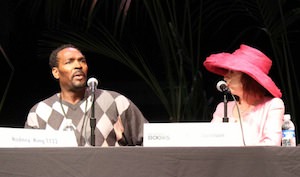
This story is part of a series commemorating the 20th anniversary of the L.A. riots on Neon Tommy, a news website sponsored by USC’s Annenberg School for Communication and Journalism.
Lucky is not exactly the word one would use to describe someone whose videotaped beating, and the subsequent acquittal of the officers accused of beating him, touched off one of the worst urban riots in American history.
“I was one of the lucky ones,” King said, adding of that fateful day, “it was a blessing the camera was there.”
King discussed the beating, the trial and the subsequent riots while promoting his memoir, “The Riot Within: My Journey From Rebellion to Redemption” during an interview with Los Angeles Times Op-Ed columnist Patt Morrison at the Los Angeles Times Festival of Books on Saturday.
The notoriety King gained before and after the riots has overshadowed nearly everything else in his life. He has been cast as a symbol of the riots that engulfed the city in 1992. That is something King acknowledges he was not ready for.
“When I was a little younger, when it happened to me in my younger age, it was a scary feeling,” he said.
On the night of March 3, 1991, King was driving at a high speed with two passengers on the 210 freeway when LAPD officers pulled him over. Drunk but unarmed, he was tased, kicked and beaten numerous times with batons for not cooperating. The whole incident perhaps would not have even made the evening news if not for the fact that a civilian bystander caught the entire beating on tape. The video became a worldwide phenomenon, and four of the officers were subsequently tried for excessive force. A jury ultimately acquitted the men—three white and one Hispanic—sparking the riots that began in South Central L.A. on April 29, 1992.
Widespread assault, arson and looting ensued in the city after the verdicts. Dozens were killed and more than a thousand people were injured during the riots.
“Why can’t we all just get along?” King famously asked reporters while the city burned.
King acknowledges that he hasn’t always coped with the fame and notoriety that followed–he’s been arrested on other occasions and has battled alcoholism, which he publicly dealt with on reality television shows “Celebrity Rehab With Dr. Drew” and “Sober House”–but insists after all these years that he’s doing fine now.
“I’m doing well, I’ve gotten at peace with myself,” he said.
He also told the Festival of Books audience that he has forgiven the officers accused of beating him, despite the extent of his injuries and the fact that he still has medical bills stemming from the incident.
“That’s how I was raised, to be in a forgiving state of mind,” he said. “I’ve been forgiven many times, and I’m only human, so who am I not to forgive someone?”
The panel was fairly short, with King on stage for less than 25 minutes because he arrived roughly 40 minutes after it was scheduled to start. He blamed Los Angeles traffic. The crowd, however, was far from restless. In the interim, Morrison conducted an informal, town-hall style meeting that was spirited and thought provoking. Audience members discussed their recollections of the riots and whether things had changed in the city. On this point, they were divided.
One woman who was on the USC campus the day the rioting broke out said she thought the city had seen positive changes since then. “I think at least in this community, I think it has,” she said, adding “I think we have a long way to go.”
Another woman, who lived at 64th and Normandie near the epicenter of the riots when they started, said “I believe things have not changed.” Although she no longer lives in the area, she visits it occasionally. “It’s even worse than the status quo at the time,” she said.
When pressed by Morrison on whether conditions had improved or deteriorated from 20 years ago, King said he believed that, for the most part, they had improved. “Are we better today or worse? I would have to say that things are better each and every day,” he said. “You have to look at the history of where we’ve come from as a whole in this country, and the work that went into it over the years.”
He added: “As far as coming a long ways, I think we have come a little ways. We’ve got a long ways to go, like Martin Luther King said, and when it comes to race relations we should always be working on that in this country because of our history of it.”
As the panel concluded, King had a final thought.
“And remember one thing,” he said, “yes we all can get along.”
To read more of Neon Tommy’s riot commemoration coverage click here.>
Your support is crucial…With an uncertain future and a new administration casting doubt on press freedoms, the danger is clear: The truth is at risk.
Now is the time to give. Your tax-deductible support allows us to dig deeper, delivering fearless investigative reporting and analysis that exposes what’s really happening — without compromise.
Stand with our courageous journalists. Donate today to protect a free press, uphold democracy and unearth untold stories.

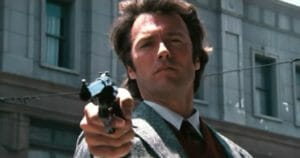
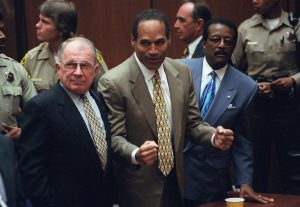
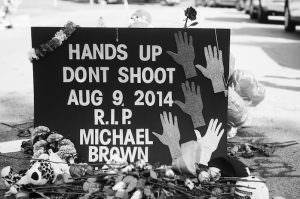
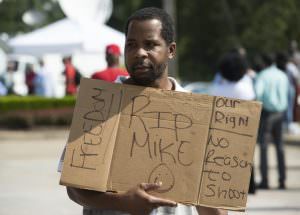
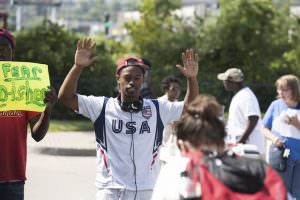
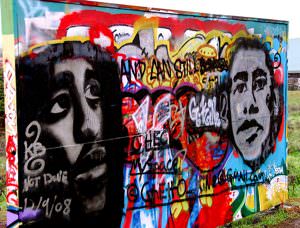


You need to be a supporter to comment.
There are currently no responses to this article.
Be the first to respond.